On May 20, 2016, KISD – Köln International School of Design hosted the interdisciplinary symposium “Grow | Degrow: Design between Excess and Calculus”. Scientists and designers discussed the meaning of sustainability and post-growth economy from various perspectives and elaborated on experimental design positions and speculative projects on how to deal with finite resources.
Today, excess is ubiquitous, unmitigated, and absolute. Modern economy structurally subsists on immoderateness that manifests in high-risk finance economy, necessity of steady growth, demand for increasing profits, and immense consumption. Not only western societies face this tremendous ecological impact caused by high consumption of goods and resources – widely occurring without control, governance or taking into account long-term consequences. Persistent hopes that an economic growth can be sustainable or climate-friendly through technological progress continuously vanish.
At the same time, massive systemic changes lie ahead which are connected to the end of the historically unprecedented growth era that began 200 years ago as a result of industrialization. Climate change, shortage of fossil energy, demographic aging, and rationalizations in the service sector are primarily regarded as reasons for current and future shrinking processes which immediately have influence on politics, economy and society. Nevertheless, the logic of growth still appears to be attractive and without alternative. Growth seems to be a dogma and a promise, which is inherent in the primacy of performance and which measures success by the ability to continually surpass former accomplishments. In this sense, all actors of society are over and over urged to show top performances and to generate profitability and maximum output. However, protests against the permanent demand for growth are getting louder.
They are directed against the principle of persistent value increase, against the excess of mass consumption, against material waste, against environmental pollution. Until recently, and since the critical discussions of the environmental movements in the 1970s and 80s, there has not been such an intensified debate on how to properly deal with available resources. Numerous concepts and approaches offer promising perspectives on alternative forms for the current and future economy and its consumption of products, goods, fuels, and resources. As a consequence, the quest(ion) for resolutions is no longer addressed to natural and technical sciences alone, but also encompasses all design, art, cultural, and creative disciplines. Which particular role can design play in this wide-ranging structural economic and societal shift? How can design be grasped and understood in the “age of Man” – the “Anthropocene” – considered and understood as a specific geological layer characterized by the industrial society?
Efforts to escape these permanent needs and calls for economic growth and technological innovation are, at least since the publication of the critical report Limits of Growth by the Club of Rome (1972) and the first oil crisis (1973), also a subject and issue of design and its agenda. However, in the course of globalization and digitization, the idea of a shrinking economy and “degrowth” has become increasingly urgent and severe. The question of how design can contribute to new outlines of society and cities, which are not necessarily oriented towards rising production and increasing consumption, is more pressing than ever. How can processes, situations, and systems be comprehended and designed which open up new action patterns and scopes beyond the paradigm of growth? What is a “re-design” of the correlation between raw material and product? Can design achieve temperance and moderation in growth processes or even some reversal or turnaround? Which new paradigms in the discipline of design are necessary for this?
The British anthropologist Timothy Ingold gives a possible answer. He postulates a shift in perspectives – away from objects and products as fixed and ultimate entities, and towards a modeled environment as a force field and circulation system of resources, energies, and substances. How would, if embraced and realized, such an understanding change the practice of design? Can such a modeled system framed by interrelated connections of goods, resources, products and their interconnected dynamics maybe evolve into a new area of expertise and research? And can these approaches, concepts, and developments really stop the excessiveness and the need for more? Or do they just put these terms to another level and simply transform them into other kinds of renunciation and control – managed and operated under the same system of intemperance and excess?
On May 20, 2016, researchers from all disciplines, from design, art, architecture, culture, natural, technical, and social sciences discussed how design can act as a medium of reflection and be an experimental ground for the development of a degrowing society.
Concept and organization
Prof. Dr. Carolin Höfler and Prof. Philipp Heidkamp with Oliver Köneke
Time
May 20, 2016, from 09:15 am to 5:30 pm
Venue
KISD – Köln International School of Design of TH Köln, Ubierring 40, 50678 Köln
Recordings
- Gerhard M. Buurmann
The Mass Consumption of Ideas: Design and the Arts of Social Intercourse - Stephanie Haury & Stephan Willinger
X-Town 2025: Scenario of a Co-Creative City - Harald Gründl
Social Furniture - Judith Dörrenbächer
Performative Experiments: New Modes of Critique and Subjectivity Provoked by Design - Gionata Gatto
Geomerce: Turning Crops Into Mines - Johannes Lang
Aesthetics as Key Category for Psychological Longevity - Karin de Miguel Wessendorf
Economy Without Growth: A Journey to Alternatives in Europe
Program
| 09:15 am | Welcome: Sylvia Heuchemer, Vice President, TH Köln Introduction: Philipp Heidkamp and Carolin Höfler, KISD |
Session I
__________________________________________________________________________
| 09:30 am | Gerhard M. Buurman, Departement Design, Zurich University of the Arts The Mass Consumption of Ideas. Design and the Arts of Social Intercourse |
| 10:15 am | Dirk Hohnsträter, Institute for Media, Theatre and Popular Culture, University of Hildesheim Designing Degrowth. Paradoxes and Perspectives |
| 11:00 am | Coffee Break |
Session II
__________________________________________________________________________
| 11:15 am | Stephanie Haury and Stephan Willinger, Federal Institute for Research on Building, Urban Affairs and Spatial Development, Bonn X-Town 2025. Scenario of a Co-Creative City |
| 12:00 pm | Harald Gründl, EOOS Design and IDRV – Institute of Design Research Vienna Social Furniture |
| 12:45 pm | Lunch |
Session III
__________________________________________________________________________
| 01:30 pm | Judith Dörrenbächer, Sciences of Art and Design, Niederrhein University of Applied Sciences Performative Experiments. New Modes of Critique and Subjectivity Provoked by Design |
| 02:15 pm | Gionata Gatto, Studio Gionata Gatto, Rotterdam Geomerce, Turning Crops Into Mines. An Enquiry on the Growth of Plants, Agriculture and Finance to Re-Imagine Speculative Future Economies |
| 03:00 pm | Coffee Break |
Session IV
__________________________________________________________________________
| 03:15 pm | Johannes Lang, History and Theory of Art, Bauhaus-Universität Weimar Aesthetics as Key Category for Psychological Longevity |
| 04:00 pm | Karin de Miguel Wessendorf, freelance journalist and documentary filmmaker, Cologne Economy Without Growth. A Journey to Alternatives in Europe |
| 04:45 pm | Summary Roundtable with the conference speakers and organizers Moderator: Marc Pfaff, Academy of Media Arts Cologne |
| 05:30 pm | End |
Speakers
Details
Date 20. May 2016
All-day
Finished
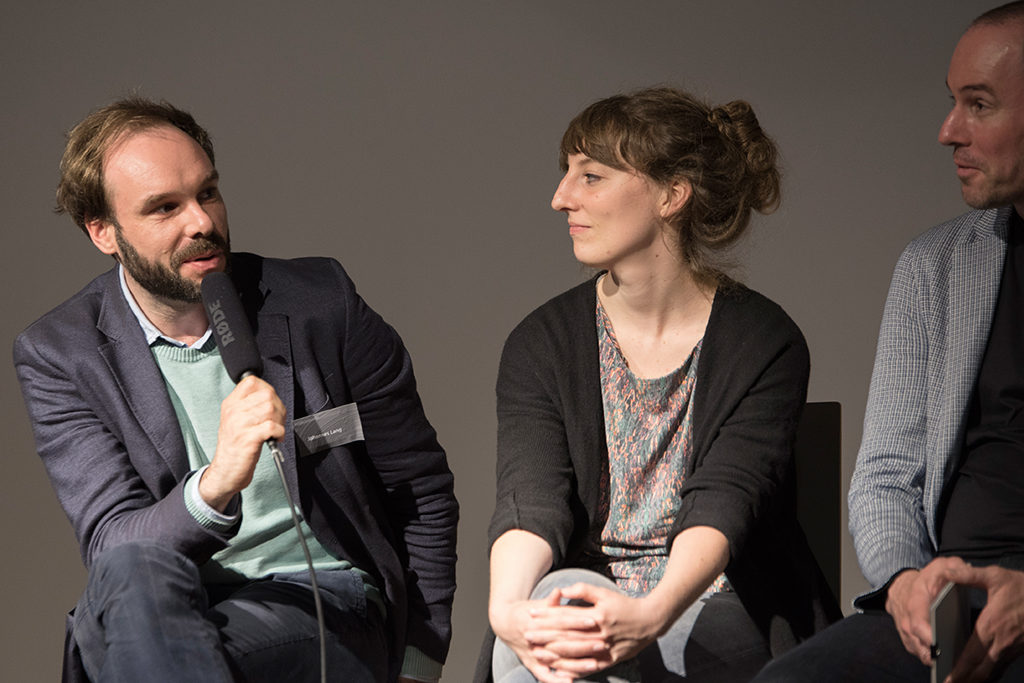
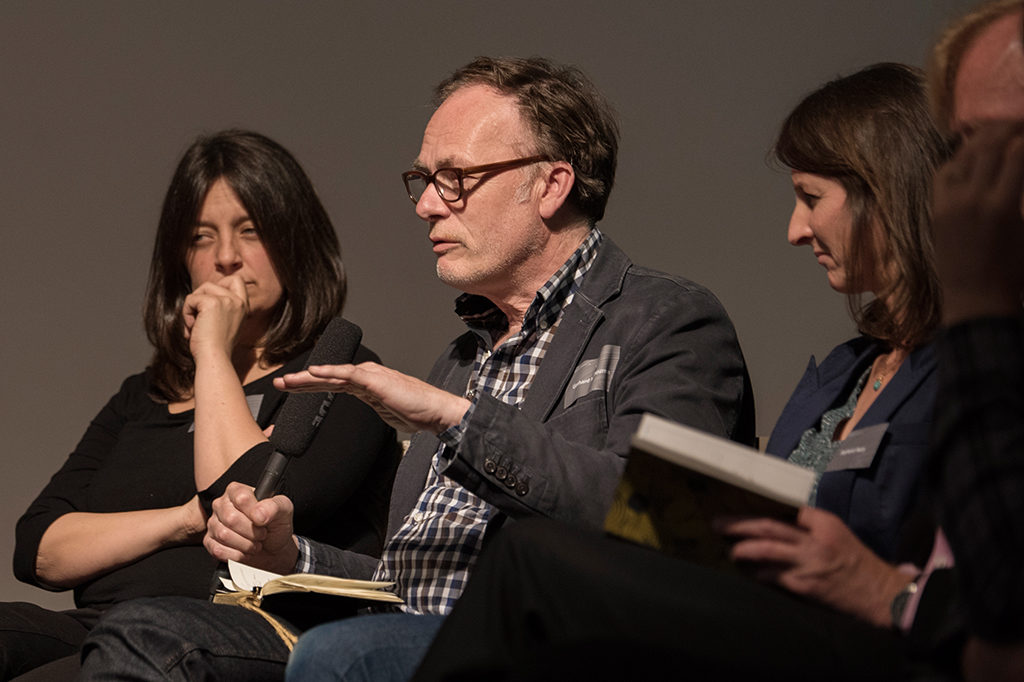
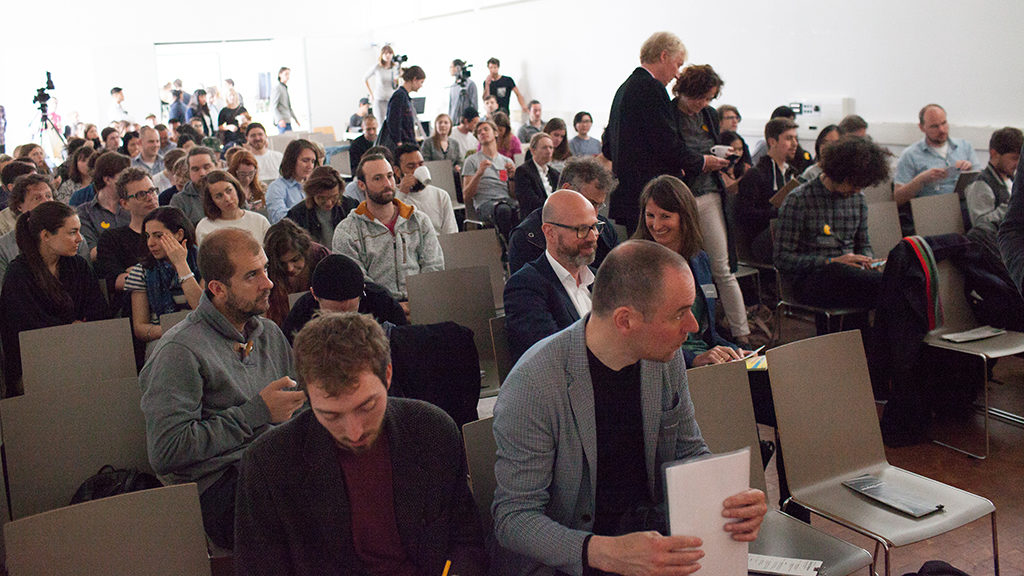
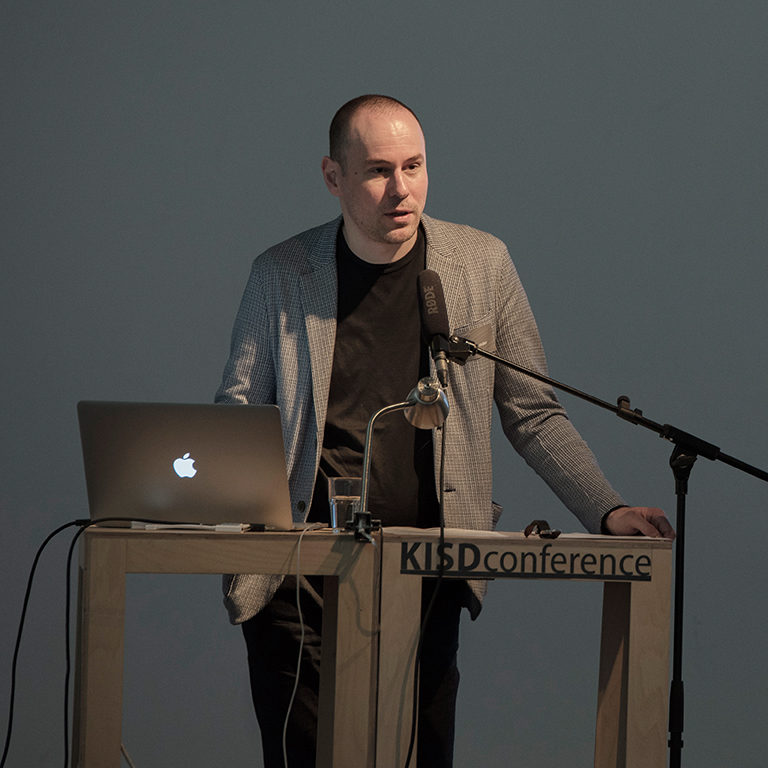
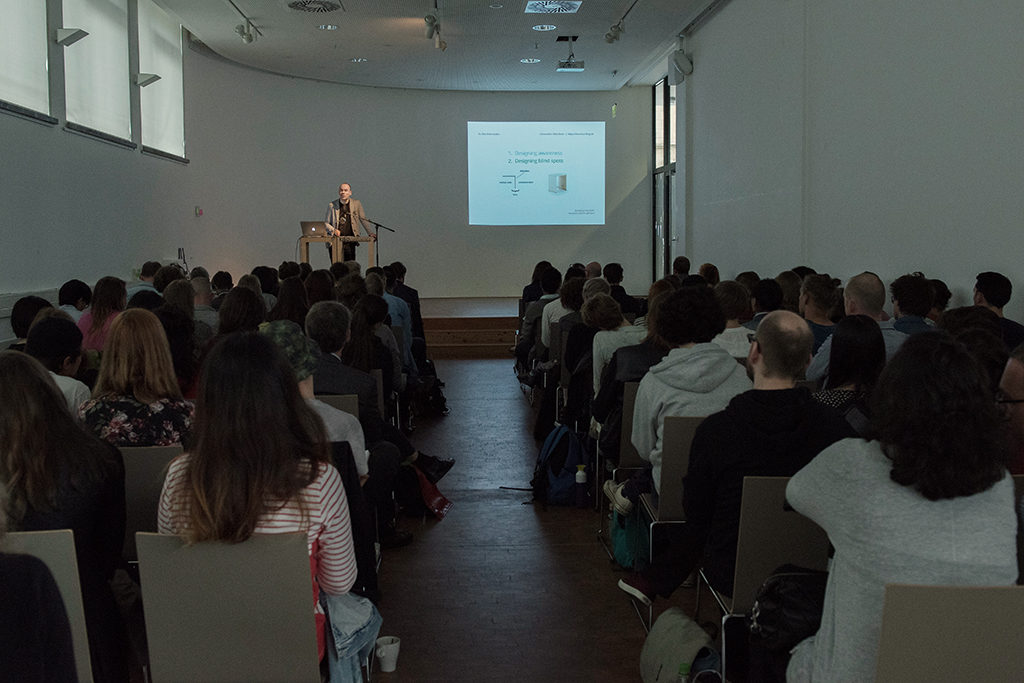
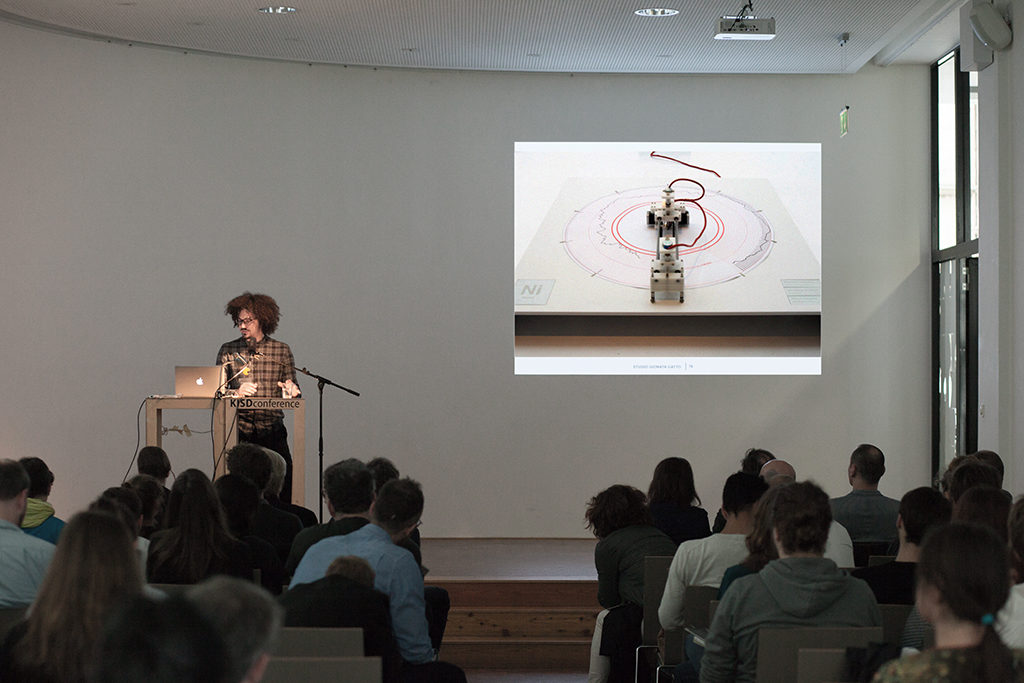
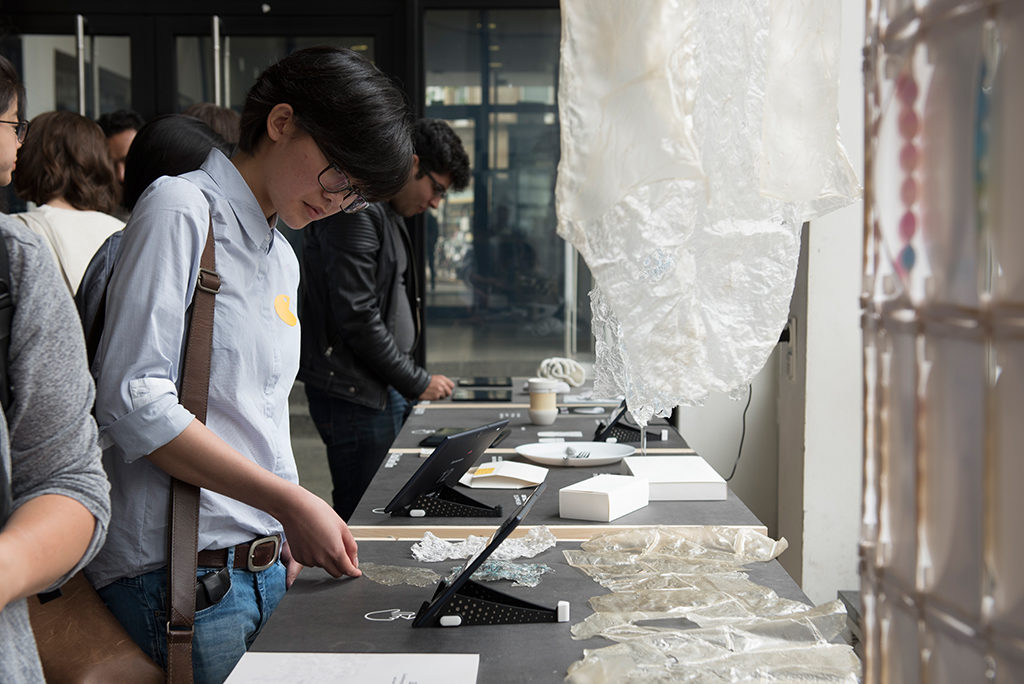
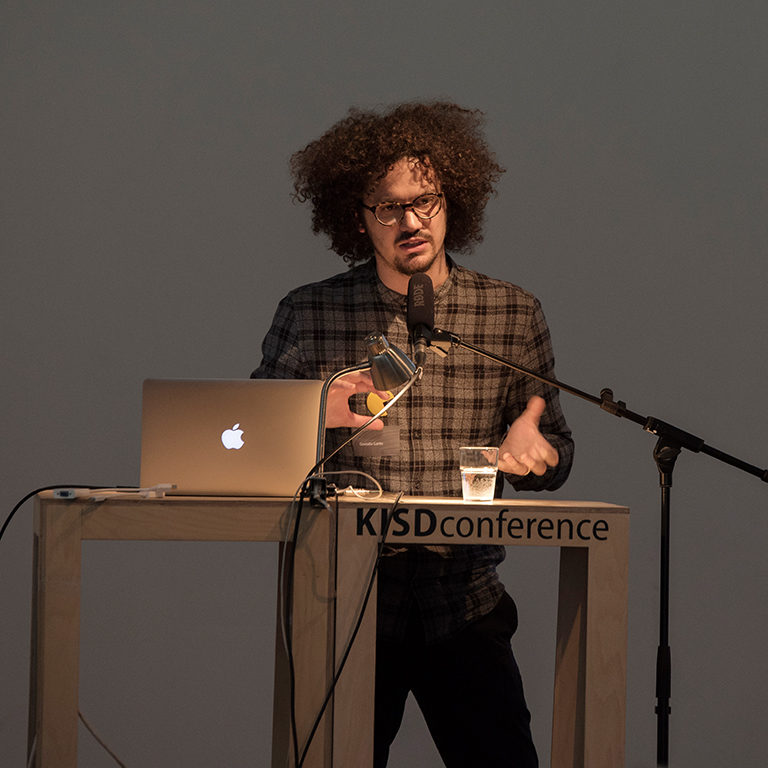
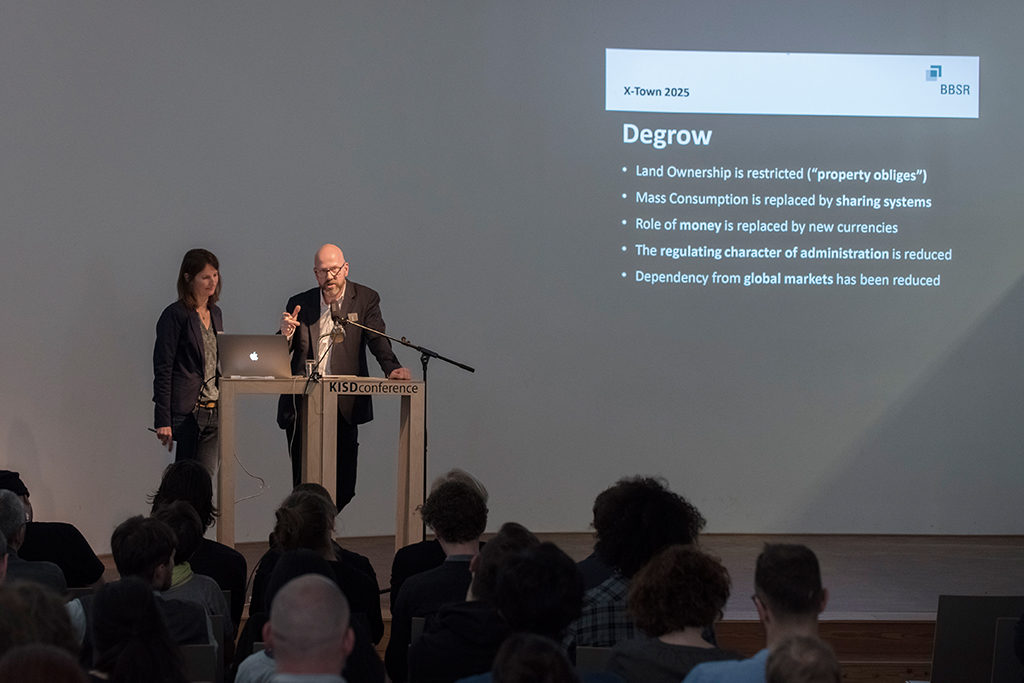
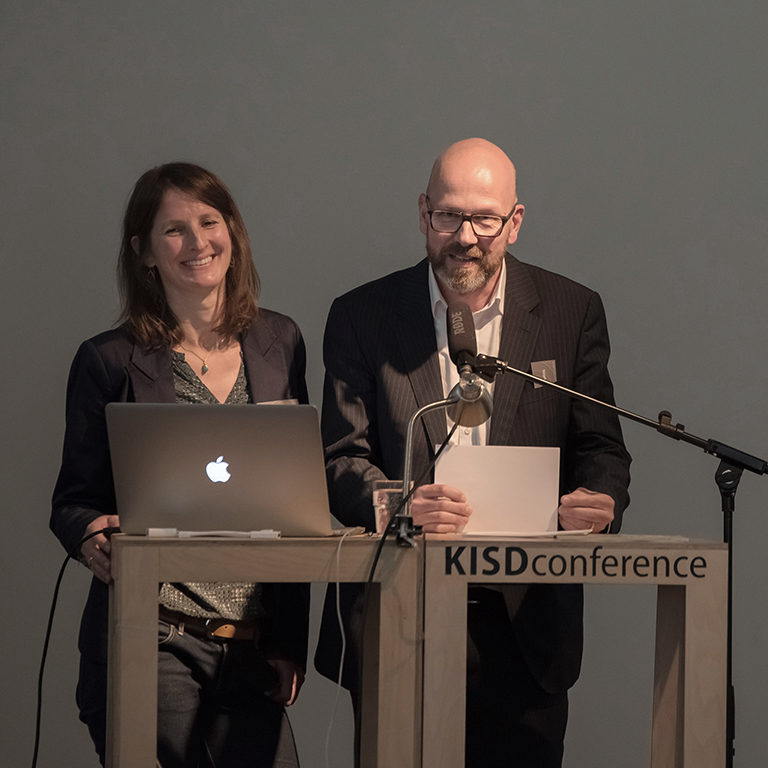
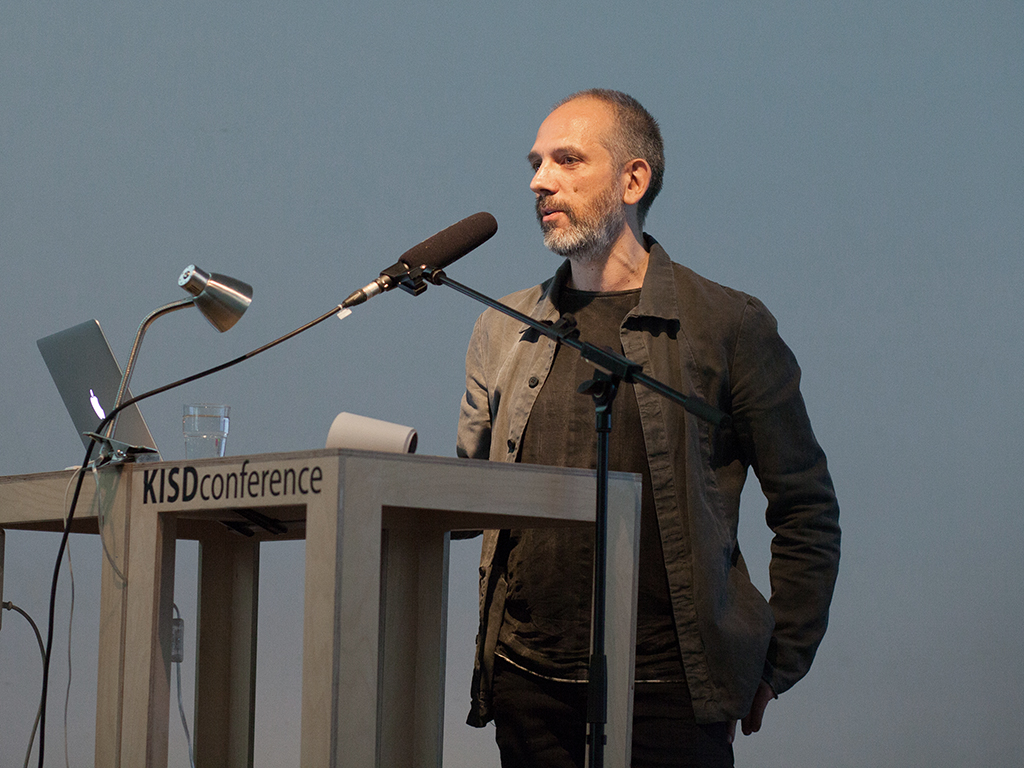
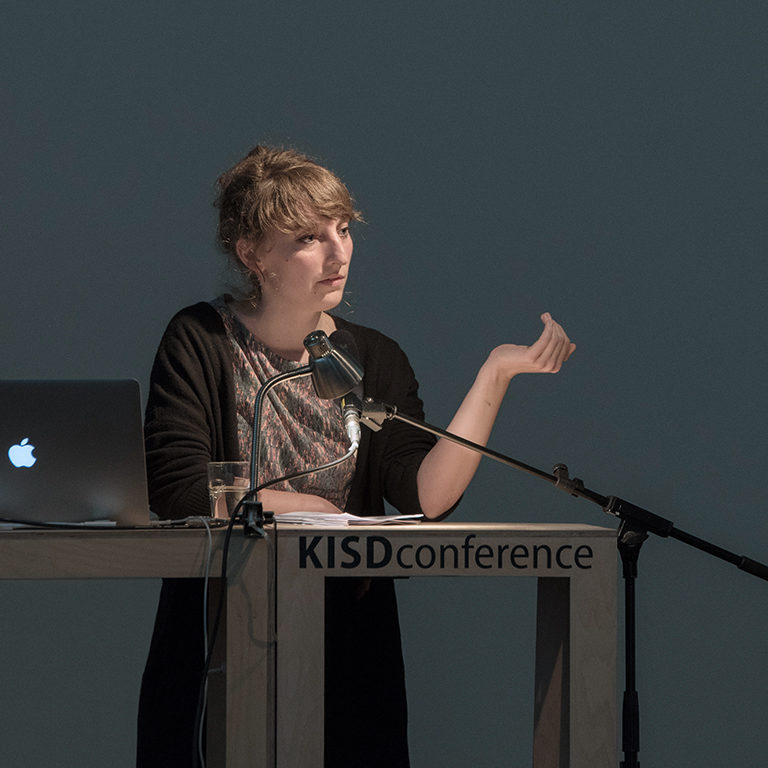
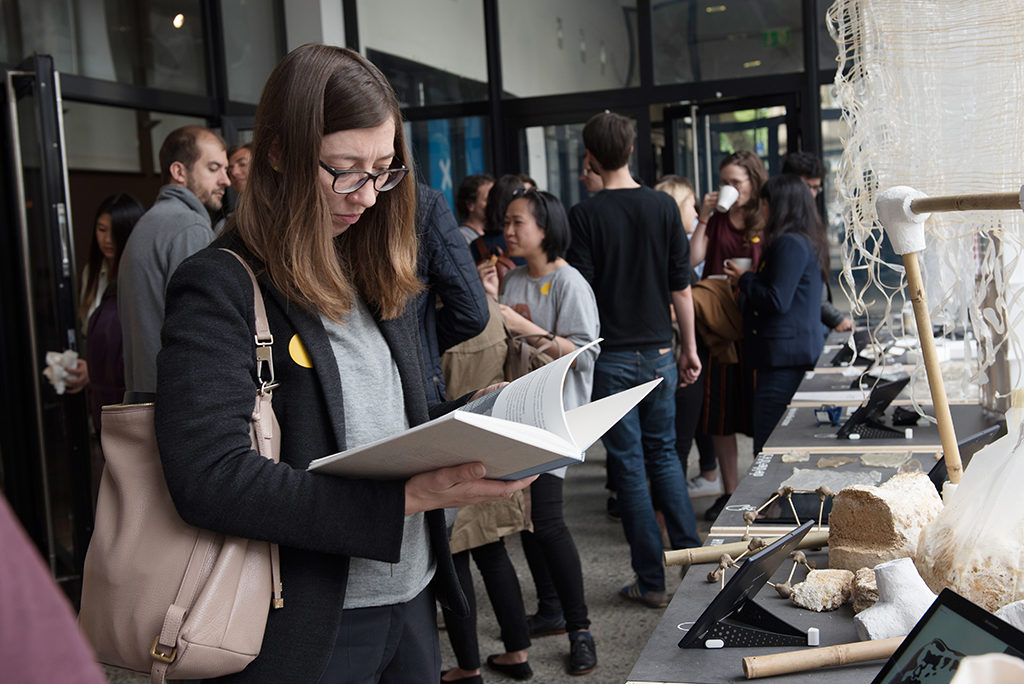
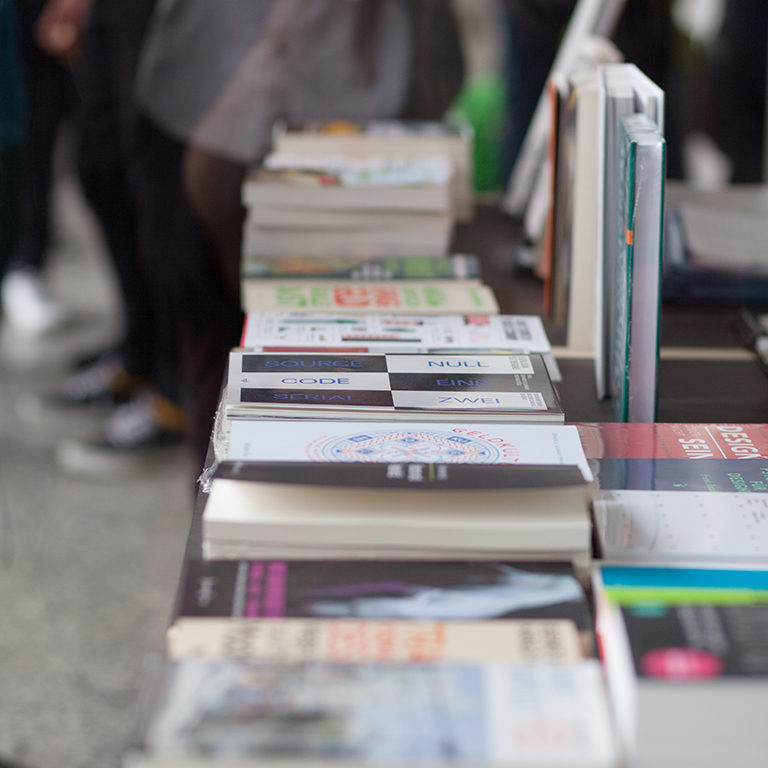
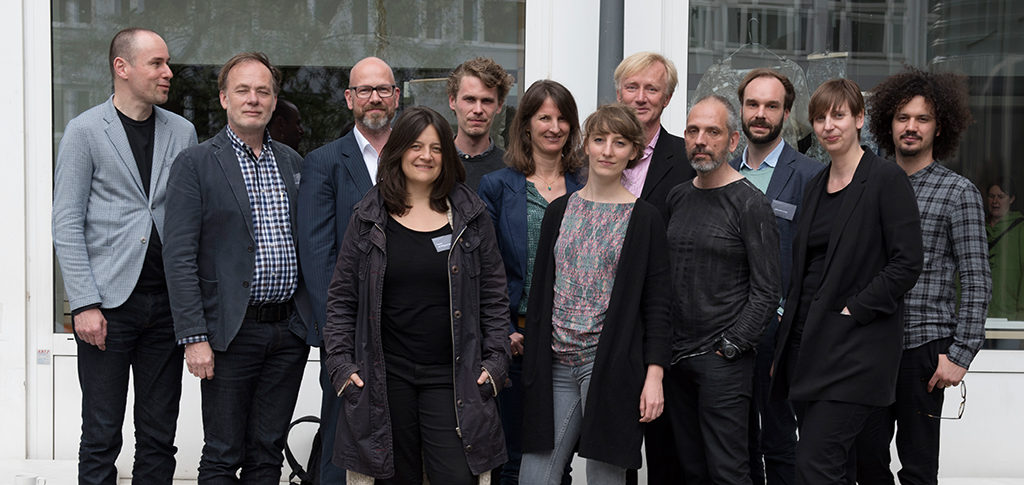
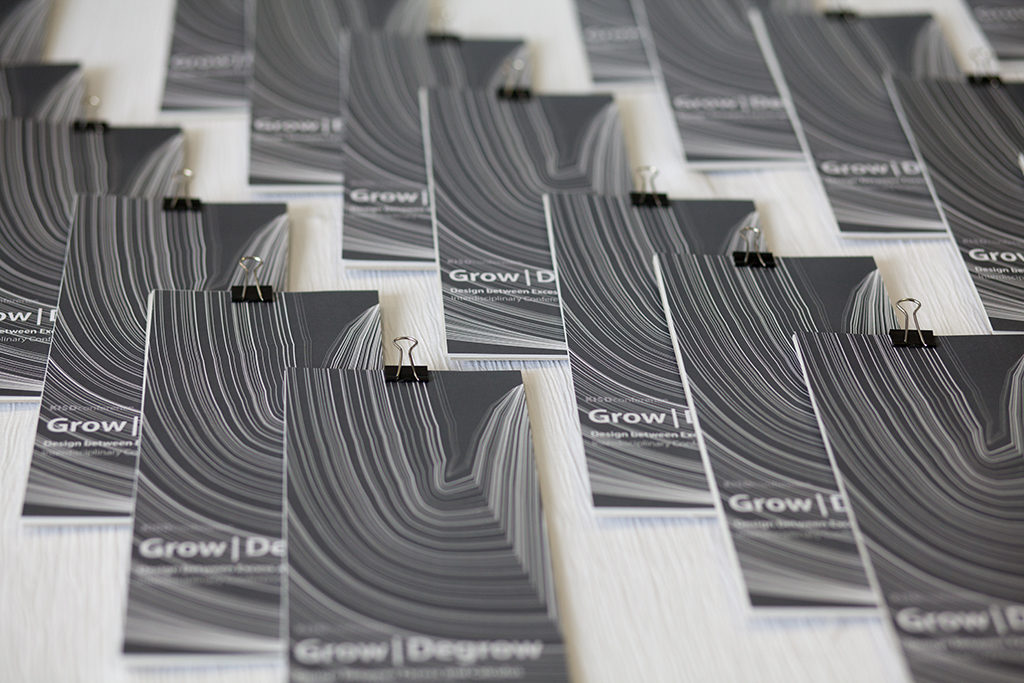
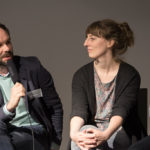
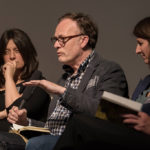
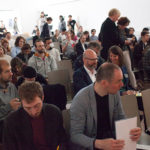
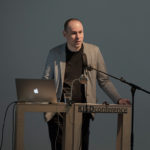
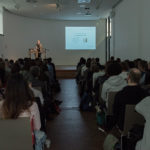
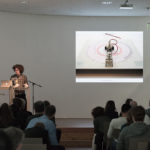
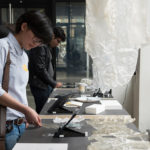
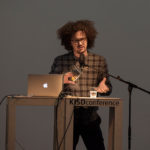
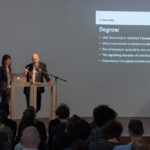
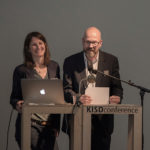
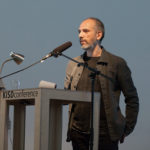
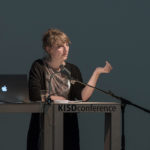
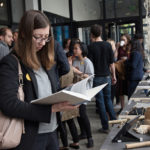

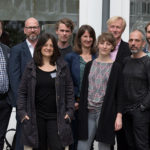
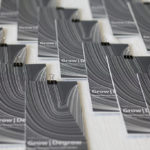
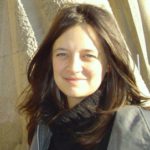 Karin de Miguel Wessendorf
Karin de Miguel Wessendorf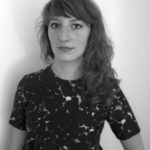 Judith Dörrenbächer
Judith Dörrenbächer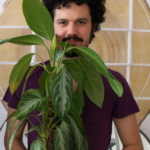 Gionata Gatto
Gionata Gatto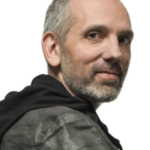 Harald Gruendl
Harald Gruendl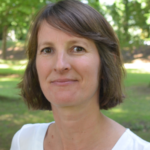 Stephanie Haury
Stephanie Haury